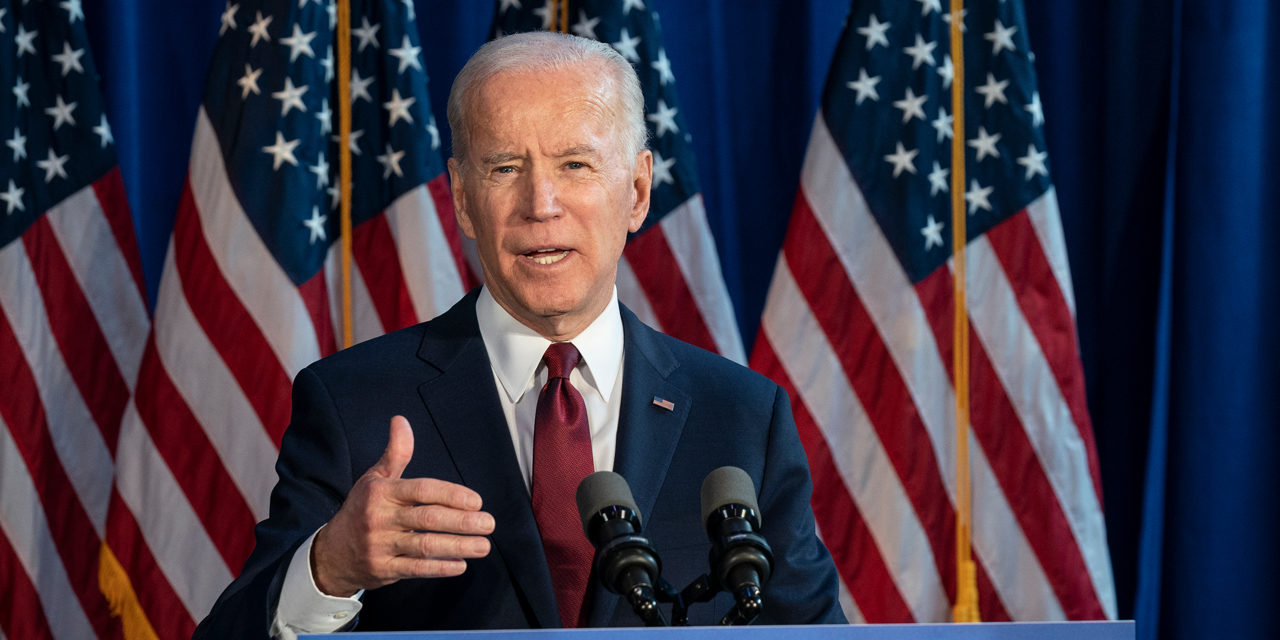In 2016, then-candidate Donald Trump released a list of candidates he would choose from to fill any Supreme Court vacancy occurring during his presidency. The list, vetted by organizations like the Federalist Society and the Heritage Foundation, was credited with shoring up support for Trump among conservatives and contributing to his victory. Trump has promised to produce another list by September 1.
The presumptive Democrat presidential nominee, Joe Biden, will accept his party’s nod this week at their convention in Milwaukee, and many are wondering whether he will follow suit and furnish his own list.
Biden half-promised back in February that if elected, he would nominate the first African American woman to the Supreme Court. “As president, I’d be honored, honored to appoint the first African American woman. Because it should look like the country. It’s long past time,” Biden said. In June, Biden appeared to firm up that promise by stating that his campaign was compiling a list of qualified candidates.
If Biden selects such a candidate from among existing federal judges, he appears to have 38 African American women to choose from, according to one source. Only five are federal Court of Appeals judges, and all of them are 69 years of age or older, making their selection unlikely. Other possible names come from state courts and progressive groups such as the ACLU and the NAACP.
Two names come up in multiple stories speculating on potential SCOTUS picks for Biden.
Leondra Kruger is currently an associate justice of the California Supreme Court. A Harvard College and Yale Law School graduate, she is a former U.S. Deputy Assistant Attorney General and former Assistant to the U.S. Solicitor General. She once clerked for U.S. Supreme Court Justice John Paul Stevens. She was appointed to California’s high court by Governor Jerry Brown. She is 44 years old.
Ketanji Brown Jackson is currently a federal district court judge in Washington D.C., appointed by President Obama in 2013. She has also served as a member of the U.S. Sentencing Commission, a federal public defender, and worked for two private law firms. She is a graduate of Harvard-Radcliffe College and Harvard Law School and clerked for U.S. Supreme Court Justice Stephen Breyer. In 2016, she was reported to be on President Obama’s shortlist for an appointment to the Supreme Court. She is 49.
Other names of potential African American women in media stories include: Anita Earls, a justice on the North Carolina Supreme Court; Sherrilyn Ifill, the President and Director-Counsel, NAACP Legal Defense and Educational Fund; Leslie Abrams Gardner, a federal district judge in Georgia; Denise Jefferson Casper, a federal district judge in Massachusetts; Andrea Robin Wood, a federal district judge in Illinois; and Wilhelmina Marie Wright, a federal district judge in Minnesota.
One pro-abortion progressive group, Demand Justice, is calling upon the Democrat nominee to abandon any thought of a middle ground justice and work from a “new playbook – one that prioritizes unabashedly progressive lawyers and legal thinkers.” The group’s list of those who meet that qualification include Leondra Kruger and Ketanji Brown Jackson.
Exit polls in the 2016 presidential election showed voters were extremely interested in the issue of judges, and Supreme Court justices in particular. Will the 2020 election come down to voters’ preferences regarding a Biden list or Trump list of potential nominees to the Supreme Court? Or will the pandemic or economic issues dominate this year?
As we head for the November elections, there’s one thing we can be sure of again this year, as in previous years. Elections have consequences, and the composition of the federal courts and the decisions they make will be impacted for years, if not decades, into the future.
Photo from lev radin / Shutterstock.com
Visit our Election 2020 page






